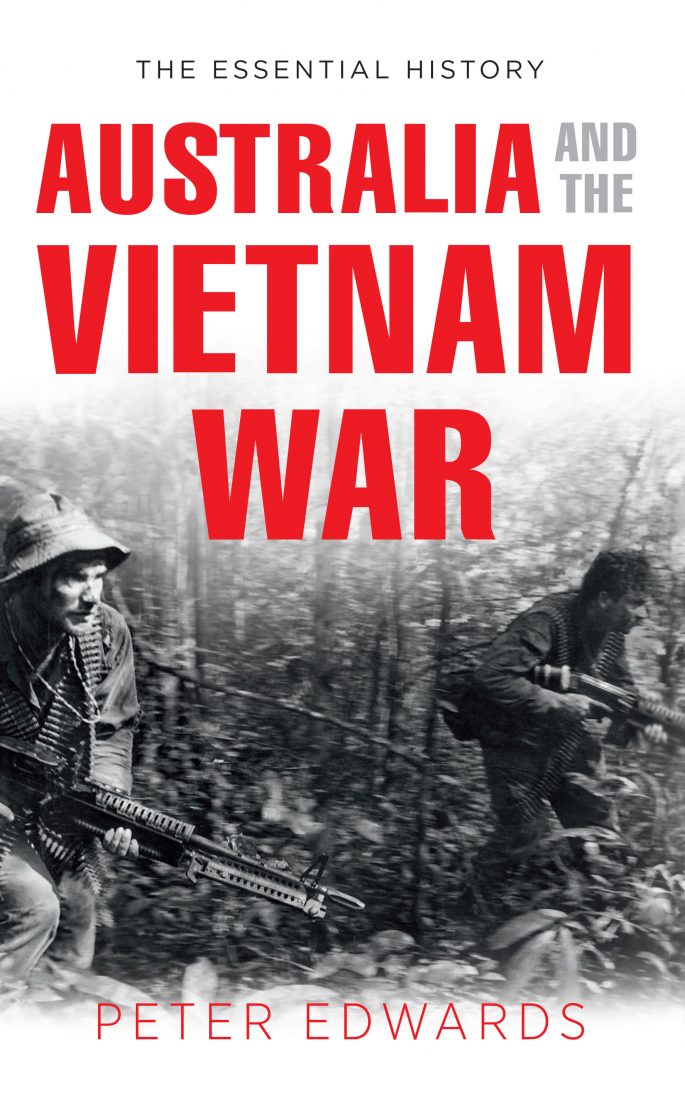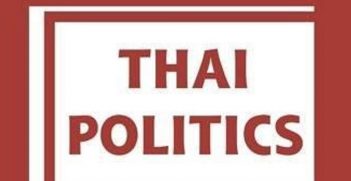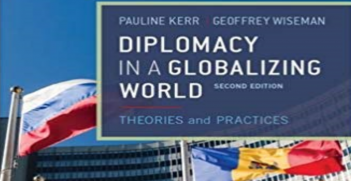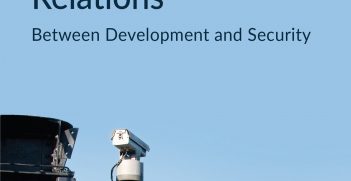Australia and the Vietnam War

The Vietnam War has become a touchstone for abject failure in war, a reference point by which to navigate the deficiencies of strategy in Australia’s recent military campaigns in Iraq and Afghanistan. But for many of those, like me, who didn’t live through the Vietnam conflict the casual comparisons between it and current wars borders on the trite. For those readers, Peter Edwards has done a great service with his Australia and the Vietnam War.
Stretching beyond the familiar tales of tactical tenacity in the jungles of Vietnam, and personal stories of the determination of Australian diggers, Edwards knits a masterful arc that links the strategic environment of post war South East Asia to the strategic dilemmas of Australian governments today. He has produced a single book distilling the best of the nine-volume series Official History of Australia’s involvement in Southeast Asian conflicts 1948-75. More importantly, Australia and the Vietnam War puts strategic decisions made by Australian leaders into context, and outlines which of their hard learnt lessons might be of relevance to decision makers today.
By necessity, much of Edwards’ analysis focuses on how leaders like Prime Minister Menzies managed the alliance with the United States. Popular memory would posit that Australia was dragged into a war of America’s choosing, with little in the way of sovereign interests at stake. Not so, outlines Peter Edwards. The South East Asia of the 1950s and 1960s was uncertain: quickly changing due to decolonization, privy to territorial disputes, and prone to the emergence of new political powers. The domino theory, Edwards concludes, was a real and present threat.
Australian leaders wanted the US military engaged in South East Asia but were alive to the intricacies of American involvement. Leaders like Menzies “respected the enormous military power of the US, but sometimes questioned the discretion and wisdom with which that power was exercised”. Australia then faced the classic alliance dilemma – how to bridle its much more powerful partner in pursuit of mutual interests?
To illustrate the complexities of Australia’s alliance management, Edwards contrasts the Anglo-Australian relationship during Confrontation with the ANZUS relationship during the Vietnam conflict. In the former crisis, Australian officials had greater involvement in the formulation of coalition strategy and deftly maintained relations with Indonesia despite Australian soldiers being in combat with their Indonesian counterparts. In the latter conflict, Australians played a largely peripheral role in decisions on the conduct of the war and struggled to maintain the capacity for independent strategic assessment and diplomatic relations.
Edwards concludes that the essence of Australia’s deficiencies on Vietnam was in the formulaic approach taken to committing Australian forces to the US-led military campaign. Essentially unchanged since the Korean conflict, this relied on sending the Australian Army quickly to the fight, bridling American risk through a multinational coalition, putting officers in strategically important positions, and carving out a relatively autonomous military task. There are strong echoes of this model in Australia’s recent commitments in Al Muthanna and Uruzgan. There are beats of the same thinking as Prime Minister Abbott weighs an imminent American request to contribute further military trainers to the fight against the Islamic State in Northern Iraq today.
Peter Edward’s analysis of the popular memory of Vietnam is timely, as Australia considers the legacy of the past century of conflicts and the place veterans hold in our society. After the Vietnam conflict, he concludes, many veterans exaggerated stories of public indifference and hostility to their return home – importing them from the American experience. This accords with the findings of another recent study of Vietnam veterans, Mark Dapin’s The Nasho’s War. Far from being met by paint throwing protestors, 15 of the 16 battalions that deployed had homecoming thank you parades on their return.
Peter Edwards has made his meticulously researched analysis of Australia’s Vietnam conflict accessible and alive. Australia and the Vietnam War laces the ground with facts at the exact same time Australian military and political leaders are again grappling with how best to contribute to US-led military contributions.





